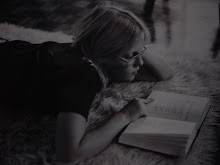This is an incredibly lovely book; the prose is absolutely delightful. It's the story of a small town Iowa preacher and is incredibly revealing about the relationships between fathers and sons. The narrator is nearing the end of his life and decides to write a series of stories to his 7-year old son. Essentially the stories center around his grandfather, his father, and his best friend of over 70 years. Of course, it's much more than that- the narrator is a preacher with some insightful outlooks on the human experience and beyond- as well as the fact that once into the first 100 pages or so, a conflict beyond the father/son issues develops.
I am sort of at a loss of words on this one. I'm not sure it is the right book for young people- too much introspection about death and beyond- not that they can't handle it, but it might be beyond them. I found myself thinking more of recommending it to people my age or older. My father-in-law, who grew up in Iowa, came to mind a lot.
Rather than use my own words, I'd like to share a few of Robinson's:
And there was baseball. I listened to thousands of baseball games, I suppose. Sometimes I could just make out half a play, and then static, and then a crowd roarings, a flat little sound, almost static itself, like that empty sound in a seashell. It felt good to me to imagine it, like working out some intricate riddle in my mind, planetary motion. If the ball is drifting toward left field and there are runners on first and third, then - moving the runners and the catcher and the shortstop in my mind. I loved to do that, I can't explain why.
And I would think back on conversations I had had in a similar way, really. A great part of my work has been listening to people, in that particular intense privacy of confession, or at least unburdening, and it has been very interesting to me. Not that I thought of these conversations as if they were a contenest, I don't mean that. But as you might look at a game more abstractly - where is the strength, what is the strategy? As if you had no interest in it except in seeing how well the two sides bring each other along, how much they can require of each other, how the life that is the real subject of it all is manifest in it. By "life" I mean something like "energy" (as the scientists use the word) or "vitality," and also something very different. When people come to speak to me , whatever they say, I am struck by a kind of incandescence in them, the "I" whose predicate can be "love" or "fear" or "want" and whose object can be "someone" or "nothing" and it won't really matter, because the loveliness is just in that presence, shaped around "I" like a flame on a wick, emanating itself in grief and guilt and joy and whatever else. But quick and avid, and resourceful. To see this aspect of life is a privilege of the ministry which is seldom mentioned.
These people who can see right through you never quite do you justice, because they never give you credit for the effort you're making to be better than you actually are, which is difficult and well meant and deserving of some little notice.
I have always liked the phrase "nursing a grudge," because many people are tender of their resentments, as of the thing nearest their hearts.
That is how life goes-we send our children into the wilderness. Some of them on the day they are born, it seems, for all the help we can give them. Some of them seem to be a kind of wilderness unto themselves. But there must be angels there, too, and springs of water. Even that wilderness, the very habitation of jackals, is the Lord's. I need to bear this in mind.
When you encounter another person, when you have dealings with anyone at all, it is as if a question is being put to you. What is the Lord asking of me in this moment, in this situation?
I am sure I would have labored in my vocation more effectively if i had simply accepted covetise in myself as something inevitable, as Paul seems to do, as the thorn in my side, so to speak. "Rejoice with those who rejoice." I have found that difficult too often. I was much better at weeping with those who weep. I don't mean that as a joke, but it is kind of funny when I think about it.
I don't know exactly what covetise is, but in my experience it is not so much desiring someone else's virtue or happiness as rejecting it, taking offense at the beauty of it.
Truly, Gilead is a beautiful read. It starts and stops like an old man's thoughts, and yet is incredibly difficult to put down. I got caught up in his life and in his stories, and I think you might too.
Subscribe to:
Post Comments (Atom)

1 comment:
I just finished reading this book. I really liked the character Jack and how he was a parallel character to John Ames, whom he was named after.
I loved how it was written and how real it was.
Post a Comment